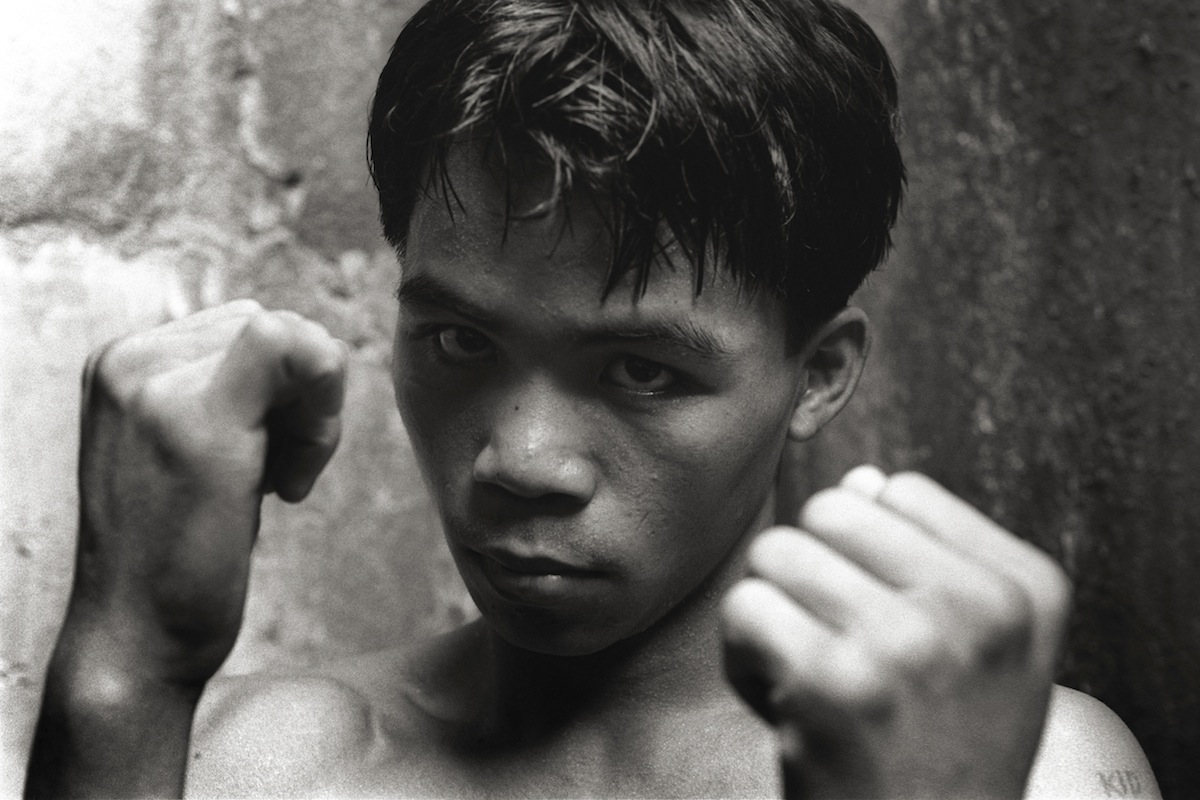
When TIME profiled Manny Pacquiao in 2009, the boxer—who will take on Floyd Mayweather Jr. in a much-hyped Saturday night bout—was already an international star. His face was all over American media, and his name was known among boxing fans everywhere. But nowhere was he more loved than in his homeland, the Philippines.
In the Philippines, TIME’s Howard Chua-Eoan and Ishaan Tharoor explained, Pacquiao was “a demigod.” And his divinity was only increasing. But, it turned out, not every element of the popular version of his backstory was actually true. For example, as Pacquiao himself told it, he left his hometown for economic reasons, not to find boxing success:
Pacquiao has a myth of origin equal to that of any Greek or Roman hero. Abandoned by his father and brought up by a tough-as-nails mother, the poor boy who loves to box is rejected by a local squad but then journeys many islands away, to the country’s metropolis, Manila, to make it big. Then he leaves the Philippines to make it even bigger, conquering the world again and again to bring back riches to share with his family and friends. Now, in his hometown of General Santos City on the island of Mindanao, he and his family own commercial buildings, a convenience store, cafés and a souvenir shop that sells everything from DVDs of his fights to T-shirts to bobblehead dolls. In Manila, his children attend one of the most exclusive and expensive private schools. He is generous to a fault, spending thousands of dollars a day feeding and entertaining guests. For his last fight, he distributed $800,000 in tickets to friends.
…A movie has been made of his life. But Pacquiao says the full details of that life couldn’t possibly fit into just one film. There are things to clear up. For one, he did not leave ramshackle General Santos City, a camp of tin and thatch, to pursue boxing, even though he did love the sport. He left home at 14 because his mother Dionisia, who did odd jobs and factory work and hawked vegetables by roadsides, wasn’t really making enough to feed her six children. He had to go off and earn money elsewhere, doing anything to relieve the burden on his mother–even if she wanted him by her side. As it was, he was often absent from school because the family needed him to help sell snacks and trinkets on the potholed lanes where nearly naked children with matted hair still chase rusting bicycle wheels for fun. Pacquiao liked school, correcting and grading his classmates’ homework. He “never cheated during a quiz–he wouldn’t try to look sideways, this way or that,” says one of his schoolteachers from the Saavedra Saway Elementary School. A decent education, however, requires several years and a lot of money. The Pacquiaos had trouble accumulating even a little.
That trouble, of course, was no more.
By 2009, as the story made clear, the Pacquiao family was well-established—and they could get even more so very soon: both of Saturday’s competitors stand to earn more than $100 million from the fight.
Read the full story, here in the TIME archives: The Meaning the Mythos of Manny Pacquiao
Read an earlier profile of Manny Pacquiao, from 2004, here in the TIME archives: From Zero to Hero
More Must-Reads From TIME
- The 100 Most Influential People of 2024
- The Revolution of Yulia Navalnaya
- 6 Compliments That Land Every Time
- What's the Deal With the Bitcoin Halving?
- If You're Dating Right Now , You're Brave: Column
- The AI That Could Heal a Divided Internet
- Fallout Is a Brilliant Model for the Future of Video Game Adaptations
- Want Weekly Recs on What to Watch, Read, and More? Sign Up for Worth Your Time
Write to Lily Rothman at lily.rothman@time.com